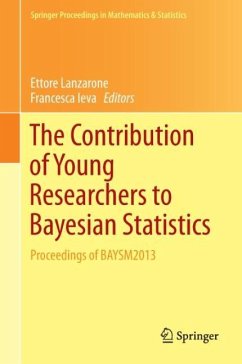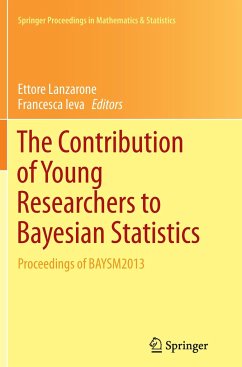
Thomas Bayes
Versandkostenfrei!
Versandfertig in 6-10 Tagen
23,99 €
inkl. MwSt.

PAYBACK Punkte
12 °P sammeln!
High Quality Content by WIKIPEDIA articles! Thomas Bayes, (c. 1702 17 April 1761) was a British mathematician and Presbyterian minister, known for having formulated a specific case of the theorem that bears his name: Bayes' theorem, which was published posthumously. Thomas Bayes was born in London. In 1719 he enrolled at the University of Edinburgh to study logic and theology. He is known to have published two works in his lifetime: Divine Benevolence, or an Attempt to Prove That the Principal End of the Divine Providence and Government is the Happiness of His Creatures (1731), and An Introduc...
High Quality Content by WIKIPEDIA articles! Thomas Bayes, (c. 1702 17 April 1761) was a British mathematician and Presbyterian minister, known for having formulated a specific case of the theorem that bears his name: Bayes' theorem, which was published posthumously. Thomas Bayes was born in London. In 1719 he enrolled at the University of Edinburgh to study logic and theology. He is known to have published two works in his lifetime: Divine Benevolence, or an Attempt to Prove That the Principal End of the Divine Providence and Government is the Happiness of His Creatures (1731), and An Introduction to the Doctrine of Fluxions, and a Defence of the Mathematicians Against the Objections of the Author of the Analyst (published anonymously in 1736), in which he defended the logical foundation of Isaac Newton's calculus against the criticism of George Berkeley, author of The Analyst.












